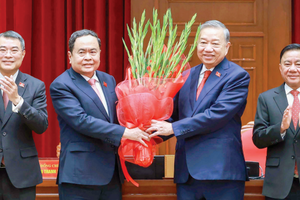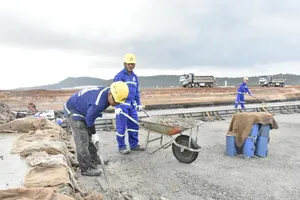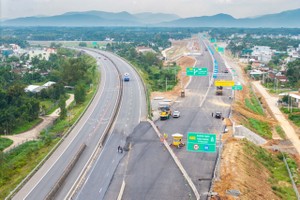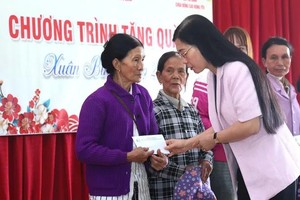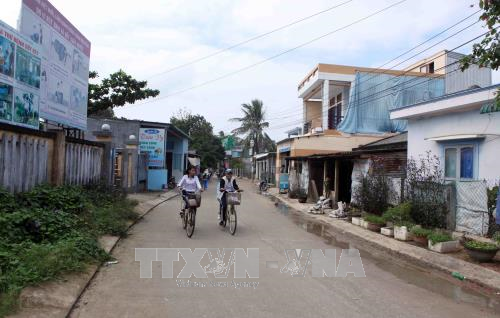
Besides, a set of national criteria for model new-style rural areas and another set of criteria for model new-style residential areas should be set forth soon for recognised new rural communes.
Participants at the seminar also stressed the need to build more regulations and mechanisms to attract investments in agriculture and rural areas, as well as a legal corridor in producing, purchasing and processing agro-forestry-fishery products.
Over the past time, through campaigns and movements launched by the VFF and its member organisations, people have actively participated in production chains of new-style cooperatives, applied high-technologies in production, and protected the environment as well as cultural values.
As a result, as many as 2,884 communes or 32.3 percent of communes nationwide were recognised as new-style rural areas by the end of November 2017, surpassing the target of at least 31 percent.
Of the total, 326 communes have met the new national criteria on new rural communes during 2016-2020, according to the Coordination Office of the National Target Programme on New-Style Rural Area Building.
As of December 15, 43 district-level units in 24 centrally-run cities and provinces have been certified as new rural areas, up 13 districts compared with the end of 2016 and exceeding the target of 38.
The General Statistics Office revealed that as of the end of 2016, 99.4 percent of communes nationwide have auto-accessible roads to commune centres. All communes and 97.8 percent of villages are connected with the national power grid. Meanwhile, 99.7 percent of communes have preschools and elementary schools and 99.5 percent of communes have medical centres.
Some 3,854 production models have been connected with each other by value chains. There are 11,183 agricultural cooperatives, with each earning an average of VND1.1 billion ( $48,400) annually.
Notably, localities have set forth roadmaps to deal with debts in infrastructure construction.
